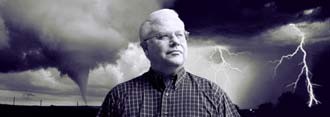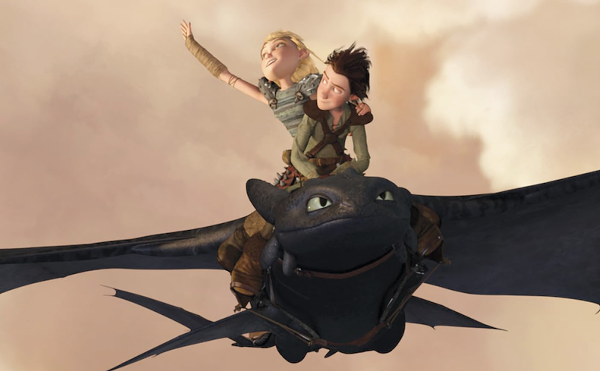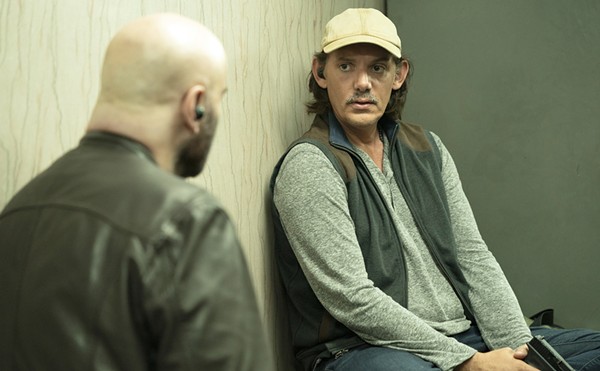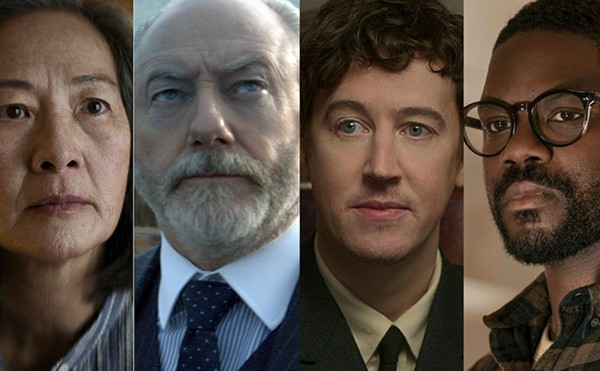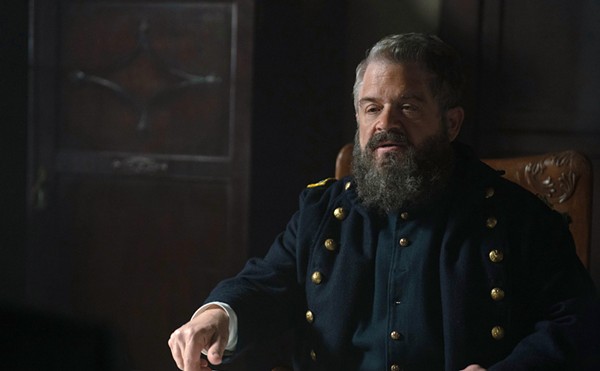|
By Gregg Barrios "The icecaps are melting, tra-la-la-la / all the world is drowning." — Tiny Tim, 1968. Sci-fi-horrormeister novelist Whitley Strieber is on a roll. The 50-something San Antonio native whom actor Christopher Walken portrayed in the film version of his international best seller Communion is promoting his newest effort, The Day After Tomorrow, a novelization of the hot summer disaster movie that opened last week to big box office. Not coincidentally, the film is loosely based on Strieber's The Coming Global Superstorm, which he co-wrote with conspiracy theorist and radio host Art Bell. "The original book is a mix of fact and fiction," Strieber said in an interview at a local restaurant, a day after attending the film's premiere with his wife Anne in New York City. "Seeing the movie emerge like this is an extraordinary experience because they took elements of my fiction and expanded and amplified and added new elements of their own. That is why the movie credits have 'suggested by' in the end titles instead of 'based on' in the opening titles. "I want desperately there to be some serious thinking and planning about exactly where we are in terms of the climate. We have 6 billion lives to think about," he adds. The film has created a firestorm of its own with its premise that greenhouse gasses will bring on a new ice age faster than you can say global warming. At the onset of the interview, Strieber spends an inordinate amount of time defending this plot point. However, the audience in the screening of the film I attended seemed to suspend their disbelief and buy into the movie's premise without much hand wringing. But will a hokey screenplay and CGI pyrotechnics lead to serious discussion? "The human drama in the movie is going to be pooh-poohed as being too simplistic, but people forget that during a time of great stress, a tragedy, a lot of people would respond to it emotionally, but a lot of critics would say it is too simplistic. Those critics generally have never been in a disaster." Still, a lot of politically connected people are taking the film's premise seriously. Days before the film's opening, former vice-president Al Gore urged his political advocacy group MoveOn.org to hand out informational flyers on the threat of global warming along with petitions urging the passage of the McCain-Lieberman Climate Stewardship Act. One of the group's flyers states: "This is the movie the White House doesn't want you to see." And with good reason, for the character of the venal vice president in the film bears an uncanny likeness to Dick Cheney. So far the Bush administration has refused to comment on the film or its global warming message. Or has it? Strieber thinks otherwise. "Today, John Ashcroft announced that there were seven devastatingly dangerous terrorists on the loose here in the United States ready to blow up an atomic bomb or a biological weapon or something. I am hoping this was an effort on his part to distract the public from the movie. This is no more real than the whole WMD thing. I have to say I have my fingers crossed for myself and everyone else in this country." Strieber said that Tomorrow is also loaded with over-the-top political barbs. "In `the movie`, Roland (Emmerich) has people from the U.S. desperately crossing the Rio Grande to go into Mexico - sort of backward wetbacks. And the Mexican government closes the border to U.S. immigrants. And only when the President agrees to forgive all Latin American debt does Mexico reopen its borders to the Americans. Which says an awful lot about economics and its politics. Should a country in need of infrastructure improvements be required to pay in full with interest for those improvements or should the (First) World be looking at another way of doing that?" In addition to Communion, Strieber's novels Wolfen (there is a nod to it in Tomorrow), and the cult classic The Hunger have been made into successful films. The Sci-Fi Channel is making his last two novels into a mini-series. Strieber and his wife also host a radio show, Dreamland, and the popular Internet website unknowncountry.com. Beyond global warming, Strieber believes we face a tremendous threat from assorted manmade and natural ills, from "fundamentalism to the catastrophic passage of the Patriot Act." He cited asteroids and a flip of the magnetic poles as future dangers that need to be researched and understood. As he left for another interview, he acknowledged that all isn't doom and gloom. "In order to survive as a species, we must learn what we learned before as the ice age 100,000 years ago closed in on us. We must have learned to test the boundaries of our experiences somehow or it would have extinguished us. I think we can do that again." •
|

